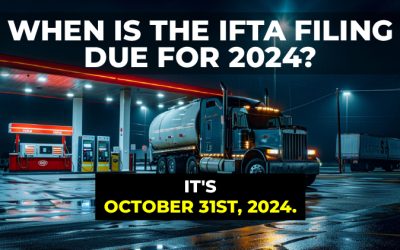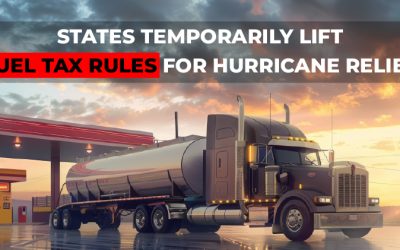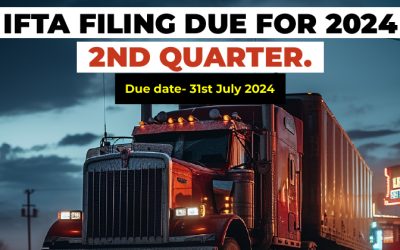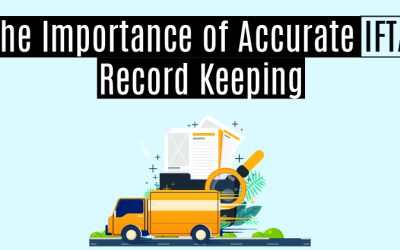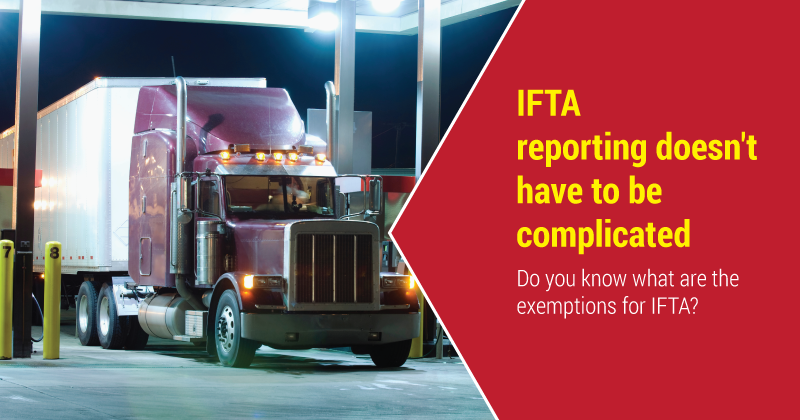
The IFTA fuel tax report is a quarterly report that calculates fuel taxes due or refunds. This report is used to shift taxes from collecting to due states. In certain instances, states make special tax exemptions and could even provide refunds for overpaid fuel taxes.
Recreational vehicles, such as mobile homes, pickup trucks with connected campers, and buses are exempt when operated only for personal pleasure by a single person. Some states have their exemptions frequently applied to farm or government vehicles.
There are three main types of exemptions: vehicle, fuel, and distance. Not all states have all three exemptions. For example, Texas doesn’t support vehicle or fuel exemptions, and Colorado doesn’t support distance exemptions. Check specific jurisdiction exemptions before doing anything on the IFTA Website.
Vehicle Exemptions
There are 13 types of vehicle exemptions recognized by IFTA: Government-owned vehicles, political subdivisions, school buses, buses, special mobile equipment, farm plated vehicles, temporary permit vehicles, recreational vehicles, dealer registration plates, non-highway vehicles, tow trucks, and other. Each state can provide its own type of vehicle exemptions from IFTA reporting, emergency vehicles, religious owned, and implementation of husbandry vehicles in Pennsylvania. If you are exempt in your state, you still need to check with the jurisdiction you are traveling to determine if IFTA credentials are required.
As is a running theme for IFTA, not all states, even if they recognize vehicle exceptions, recognize all of them. You find the list of vehicle exemptions for each state in 2022 here.
Fuel Exemptions
Fuel exemptions are important when calculating your vehicle’s taxable gallons consumed. In 2022 only 24 states offered fuel exemptions, including off-road diesel, temporary permits, offloading idle time, Indian reservation fuel, exempt fuel use claim required, farmers, gasoline, gasohol, E-85, M-85, A-55, and Biodiesel. And just because a state offers fuel exemptions does not mean they offer all of them. Each state has its own unique rules.
For instance, in Maryland, traditional gasoline is not exempt. Still, a percentage refund can be claimed for PTO drove concrete mixer or pumper, fuel delivery vehicle, solid waste compacting vehicle, well drilling vehicle, or adequately registered farm spreading vehicle per regulation. While in Connecticut, there is no statutory provision for the exemption or refund of fuel used while a car is idle. A few states, like Michigan, allow for exempt fuel use claims. This is where companies can get a refund on tax-paid fuel for tax-exempt fuel purchases tax. Most have a statute of limitations for a refund claim from the date the fuel is purchased.
You find the list of fuel exemptions for each state in 2022 here.
Distance Exemptions
Distance exemptions are the total taxable miles driven in each jurisdiction. Certain jurisdictions allow mileage exceptions that do not count as taxable, such as fuel trip permit miles. Less than half of US states allow distance exemptions, and no state allows for all potential distance exemption types. This list includes off-the highway, forest roads, agriculture roads, private roads, federal property, turnpike miles, and trip permits.
California comes close to allowing for all exemptions (except for turn-pike miles); however, these exemptions cannot be claimed on the IFTA return. They must be claimed on a Diesel User (DU) return filed with the CA Department of Tax and Fee Administration. In other states like Kansas, Non-Highway Miles are driven on roads and other areas not open to the public for most exemptions. We think all non-public roads should be exempt. The tax money won’t be going back to those roads. But we digress.
Once again – as the theme of this section is – double check first. You can find an official list of state distance exceptions here.
Other Exemptions
Very few jurisdictions offer “other” special exemptions. Maryland has its own rules around leased commercial motor vehicles. Nebraska has a reciprocity agreement with the jurisdictions of Iowa. You can read them all here.
It is important to note that Alaska, Hawaii and the District of Columbia, the Northwest Territories, Nunavut and Yukon, and all the states and Federal District of Mexico are not IFTA members.
A vital tidbit to note on the side here is surcharges. Surcharges allow a state where fuel is purchased to keep a portion of the money regardless of where the fuel is used. Only three states collect an additional fee via a surcharge line on the IFTA reporting form. They are Virginia, Indiana, and Kentucky. These rates currently vary from 3.5 to 11 cents per gallon.
Final Words: IFTA reporting does not have to be complicated
All commercial vehicle and fleet owners must have a firm understanding of IFTA reporting requirements. IFTA was created to alleviate the stress of collecting fuel taxes, but it is complicated and fraught with difficulties.
If you’re trying to figure out how to make IFTA reporting easier for your fleet, the most significant thing you can do is start learning about the resources accessible to you. Data collection and fuel tax reporting may be made simple and stress-free with a contemporary fleet management technology like TMS-Digital’s IFTA Manager.
There’s no sense to crunch numbers by hand, filling out the paperwork with a pencil, or setting your calendar reminders for reporting when you can partner with TMS-Digital for IFTA, dispatch, tickets, and equipment maintenance, all while focusing on cybersecurity.
Technology can help you save time while also lowering your risk of making mistakes (and the likelihood of an audit). Get in touch with us right away!






